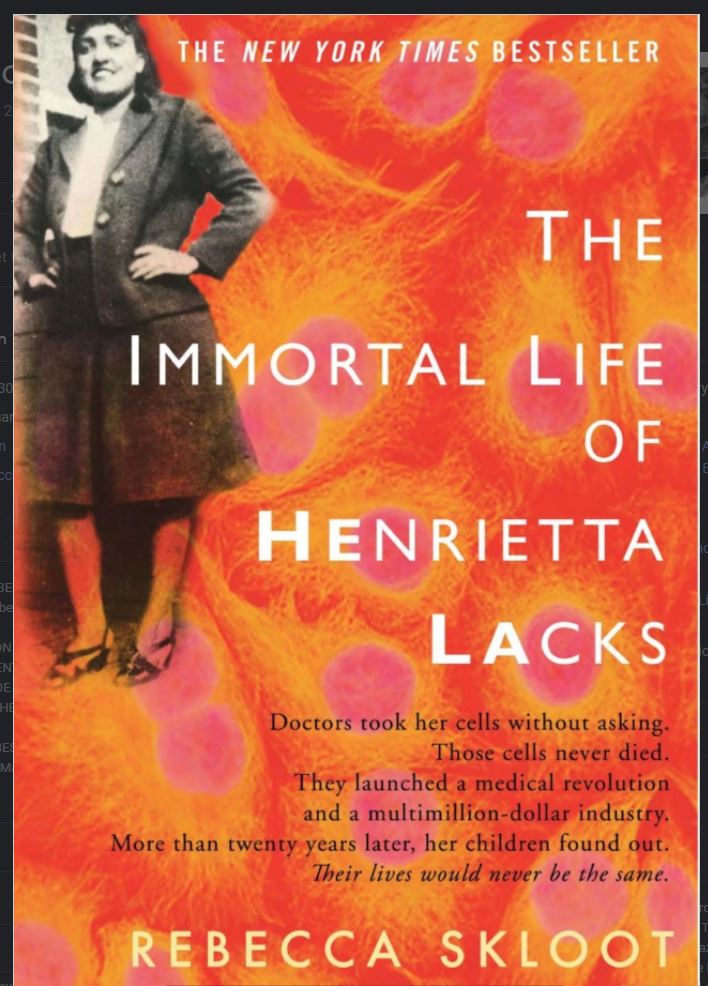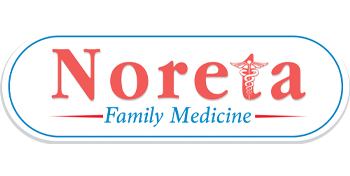Black History Month – The Story of HeLa
Medical ethics was a mandatory class in medical school, and it was eye-opening for me. Several years ago, I heard about Henrietta Lacks, but it took me a while to track down the book which contained her whole story, called The Immortal Life of Henrietta Lacks by Rebecca Skloot. With February being Black History Month, I thought it would be a fitting time to introduce you to Henrietta Lacks, an African American woman, who unknowingly helped to both advance medical research while bringing several medical ethics topics into a national discussion.

Henrietta was born in Roanoke, VA in 1920. Her grandfather, a poor Black tobacco farmer in Clover, VA, raised her. She got married, but after delivering her 5th child, started having vaginal bleeding. She went to Johns Hopkins Hospital, which at the time was one of the only hospitals that treated Black patients, where she had a biopsy that diagnosed her with cervical cancer. Unfortunately, the cancer was very aggressive, and despite treatment, she passed away in 1951. The cells that were biopsied are what caused Henrietta to become “immortal.” Her doctor had been wanting to develop a method of growing cells to use in experiments, but cells from other patients did not seem to want to grow. Henrietta’s biopsy cells were different – there seemed to be no stopping them. The cervical cancer cells were easy to grow, transfer, and transport. This discovery started a multimillion-dollar industry, which survives to this day. There are a lot of ethical issues to unpack here, and I will choose two.
1) Informed consent – There is little/no documentation that Henrietta’s doctor told her that he was going to use the cells from her biopsy for research purposes. He certainly did not tell her or her family about the remarkable characteristics of her cells or that her cells were being grown and sold to labs all over the world. In fact, the researchers kept a lot of information from the family, even medical information that could have benefitted the family. Shockingly, they continued to periodically ask the Lacks family for blood specimens over the years without informing them of what they were doing with them. This breakdown in communication led to all sorts of confusion and anger in the family.
- This is unfortunately another example of a medical entity using unethical practices when doing research on poor and not well-educated Black patients. It sounds like the attitude was “they wouldn’t understand anyways, so why try?” Amazingly, the Lacks family never sued Johns Hopkins, and it is clear in the book that while money would have been nice for the Lacks family, the primary source of anger was the complete lack of information flowing from Johns Hopkins to the family. The book does a great job of explaining the significant and multi-generational effects that this failure had on the Lacks family.
- Informed consent is still a highly debated topic. While everyone agrees that it is essential to inform patients of the benefits, risks, and alternatives of a procedure, no one seems to agree on what ideal informed consent looks like. Do doctors need to inform you of every single possible risk, benefit, and alternative of a certain procedure? That discussion could take hours! Also, to this day, consents do not always include in an explanation for what is going to happen to the tissue that is removed from your body. Formal informed consent did not exist when Ms. Lacks had her biopsy, and in fact, her case is one of the cases that prompted the development of informed consent.
2) Patient identity – While originally known as “HeLa” and falsely identified by sources as Helen Lane, Henrietta Lacks’ name was eventually released to the public. This opened the family up to unwanted contact from the media for decades. Ironically, it seemed that everyone else except the Lacks’ family understood just how much Henrietta’s cells advanced medical research. To give you some context, if a hospital released a patient’s name today, the hospital would be sued, multiple people would be fired, and the patient would receive a large financial settlement.

Overall, I would highly recommend this book as it does a great job of telling the authentic, incredible story of the Lacks’ family mixed with chapters about science and ethics. Although I have no personal experience with it, I appreciate that the author started the Henrietta Lacks Foundation which benefits “individuals who have made important contributions to scientific research without personally benefiting from those contributions, particularly those used in research without their knowledge or consent.”
Melissa Boylan MD, FAAFP
Family Physician and Owner of Noreta Family Medicine
NoretaFamilyMed.com

